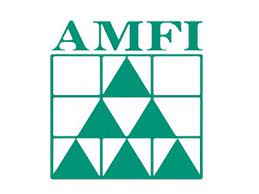In today's world, the concept of financial freedom is often glamorized as the ability to live a luxurious lifestyle without any constraints. However, true financial freedom goes beyond material wealth and possessions. It encompasses a sense of security, confidence, and peace of mind in one's financial situation. Achieving this state of true financial freedom requires cultivating financial wellbeing – a holistic approach to managing one's finances to create a fulfilling and sustainable life. In this blog, we'll explore what true financial freedom means and why understanding financial wellbeing is essential.
What is True Financial Freedom?
True financial freedom is the ability to live life on your own terms, without being shackled by financial limitations or constraints. It means having the resources, knowledge, and mindset to pursue your passions, dreams, and aspirations, without being burdened by financial stress or worry. True financial freedom empowers individuals to make choices that align with their values and goals, whether it's pursuing a meaningful career, traveling the world, giving back to the community, or enjoying quality time with loved ones. It's about living a fulfilling and purposeful life, free from the constraints of financial insecurity or dependence.
Why Understanding Financial Wellbeing is Important
Financial wellbeing is the foundation upon which true financial freedom is built. It encompasses a holistic approach to managing one's finances, encompassing various aspects such as:
- Financial Security: Feeling secure in your financial situation, knowing that you have enough resources to cover your needs and emergencies without relying on debt or external assistance.
- Financial Stability: Having a stable financial foundation that can withstand unexpected expenses, market fluctuations, or economic downturns without significant hardship.
- Financial Confidence: Feeling confident in your ability to manage your finances effectively, make informed decisions, and plan for the future.
- Financial Resilience: Being able to bounce back from financial setbacks or challenges, such as job loss, illness, or unexpected expenses, without experiencing long-term financial harm.
- Financial Independence: Having the freedom to make choices and pursue opportunities that align with your values and goals, without being dependent on others or restricted by financial limitations.
Understanding financial wellbeing is essential because it provides the framework for achieving true financial freedom. By cultivating financial wellbeing, individuals can build a solid foundation for their financial future, mitigate risks, and pursue their goals with confidence and peace of mind. It's about taking a proactive approach to managing one's finances, setting clear goals, and making informed decisions that support long-term financial health and wellbeing.
How to Achieve Financial Wellbeing
Achieving financial wellbeing requires a proactive and holistic approach to managing finances. Here are some steps individuals can take to enhance their financial wellbeing:
- Set Clear Financial Goals: Define your short-term and long-term financial goals, and develop a plan to achieve them. Whether it's saving for retirement, buying a home, or paying off debt, having clear goals provides direction and motivation.
- Create a Budget: Establish a budget that outlines your income, expenses, and savings goals. Track your spending habits, identify areas where you can cut back, and prioritize saving and investing for your future.
- Build an Emergency Fund: Set aside funds in an emergency savings account to cover unexpected expenses, such as medical bills or car repairs. Aim to save at least three to six months' worth of living expenses.
- Manage Debt Wisely: Take control of your debt by paying off high-interest debt aggressively and avoiding unnecessary borrowing. Consider consolidating debt or negotiating with creditors to lower interest rates and repayment terms.
- Invest for the Future: Develop a diversified investment strategy based on your risk tolerance, time horizon, and financial goals. Invest in a mix of assets, such as stocks, bonds, and real estate, to build wealth over the long term while managing risk.
- Protect Your Assets: Ensure that you have adequate insurance coverage to protect yourself and your loved ones against unforeseen events, such as illness, disability, or death. Consider purchasing health insurance, life insurance, disability insurance, and other types of coverage as needed.
- Seek Professional Advice: Consider working with a financial advisor or planner who can provide personalized guidance and expertise tailored to your unique financial situation and goals. A professional can help you develop a comprehensive financial plan, identify opportunities, and navigate complex financial decisions.
Conclusion
In conclusion, true financial freedom is attainable for anyone willing to prioritize financial wellbeing and take proactive steps to manage their finances effectively. By understanding the importance of financial wellbeing and implementing strategies to achieve it, individuals can lay the groundwork for a secure, fulfilling, and prosperous future. Start your journey toward financial wellbeing today and unlock the true freedom to live life on your own terms.







